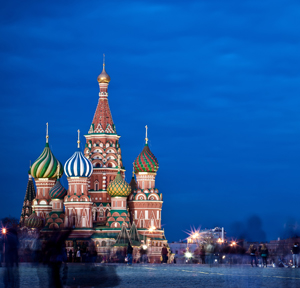Asset Management
Guest Article: Election Bringing Winds Of Change To Russia?

Editor's note: Javier Garcia, fund manager of the JB Russia Fund at Swiss & Global Asset Management, gives his views on the forthcoming presidential elections in Russia and the likely investment and economic implications. We are grateful to to Swiss & Global for this opinion piece.
Despite the poor showing in the Russian parliamentary elections in December and the subsequent political unrest, after a four-year hiatus Vladimir Putin will, in all probability, be re-elected as president in March. That said, the current prime minister must expect to face stronger resistance from the opposition forces in Russia compared with his previous two terms in office. The Russian people have apparently had enough of the ubiquitous corruption. In the index compiled by the anti-corruption organisation Transparency International, Russia ranks 143rd out of 180 countries analysed, together with Uganda and Nigeria. Even if Putin returns as president, he will do so against the backdrop of ongoing criticism from his opponents.
However, this can only be good news for Russia’s development in terms of economic policy. This time around, Putin’s “United Russia” party will finally be forced to decisively tackle the massive economic challenges that the country unquestionably faces. For example, Russia is very dependent on a high oil price: at present nearly 40 per cent of the national budget is financed by revenues from the oil business. Added to this, necessary infrastructure investment will mean Russia will have a fiscal deficit over the medium term, and this will have to be funded via privatisation, foreign direct investment or higher national debt. As regards the latter, Russia has one of the lowest levels of debt in the world.
The outcome of the elections should have only a modest impact on the equity markets. Investors’ expectations are generally very low, and a lot of negative news has already been priced in. With economic growth anticipated at around 4 per cent, there are opportunities on offer for investors in a number of different areas this year. Driven by the 2014 Winter Olympics in Sochi and the World Cup in 2018, infrastructure investment should have a positive impact on the construction sector and above all bolster Russia’s image over the long term. Companies with a globally competitive advantage are to be found in the steel, titanium and fertiliser industries, among others.
Russia’s consumer goods industry also holds long-term appeal for investors, one of the key factors here being the middle class that has been burgeoning for some years. The decisive component in the formation of this middle class is money. The average monthly per capita income in Russia is currently $900 – nearly half the European average. Secondly, the consumer goods sector is still far from being saturated. The car industry offers a good example of this. There are currently around 36 million cars in Russia, which means only one in four Russians owns a car. Compare that with Germany, where half the population owns their own car.
All in all, investors who are willing to take on risk will find good buying opportunities in Russia – the average price/earnings ratio for 2012 stands at 5.6, a discount of around 50 per cent on the average of the other emerging markets. Investors should focus their attention on companies with higher dividends and better corporate governance.
In saying this, it is important not to forget that amid all the bright spots there are shadows as well. Russia will remain a high-beta market, and will therefore be more volatile than others. Putin has also yet to respond to certain issues, such as judicial reform and legal security for international investors. One hopes that Putin understands the warning signals from the electorate, and that he will no longer be able to ignore the calls for economic policy reforms.
One further ray of hope comes with Russia joining the World Trade Organization, with the signing of the agreements in the first half of 2012 concluding this process. China enjoyed a surge in modernisation when it joined the WTO ten years ago, and Russia is well positioned to benefit from a similar effect.
